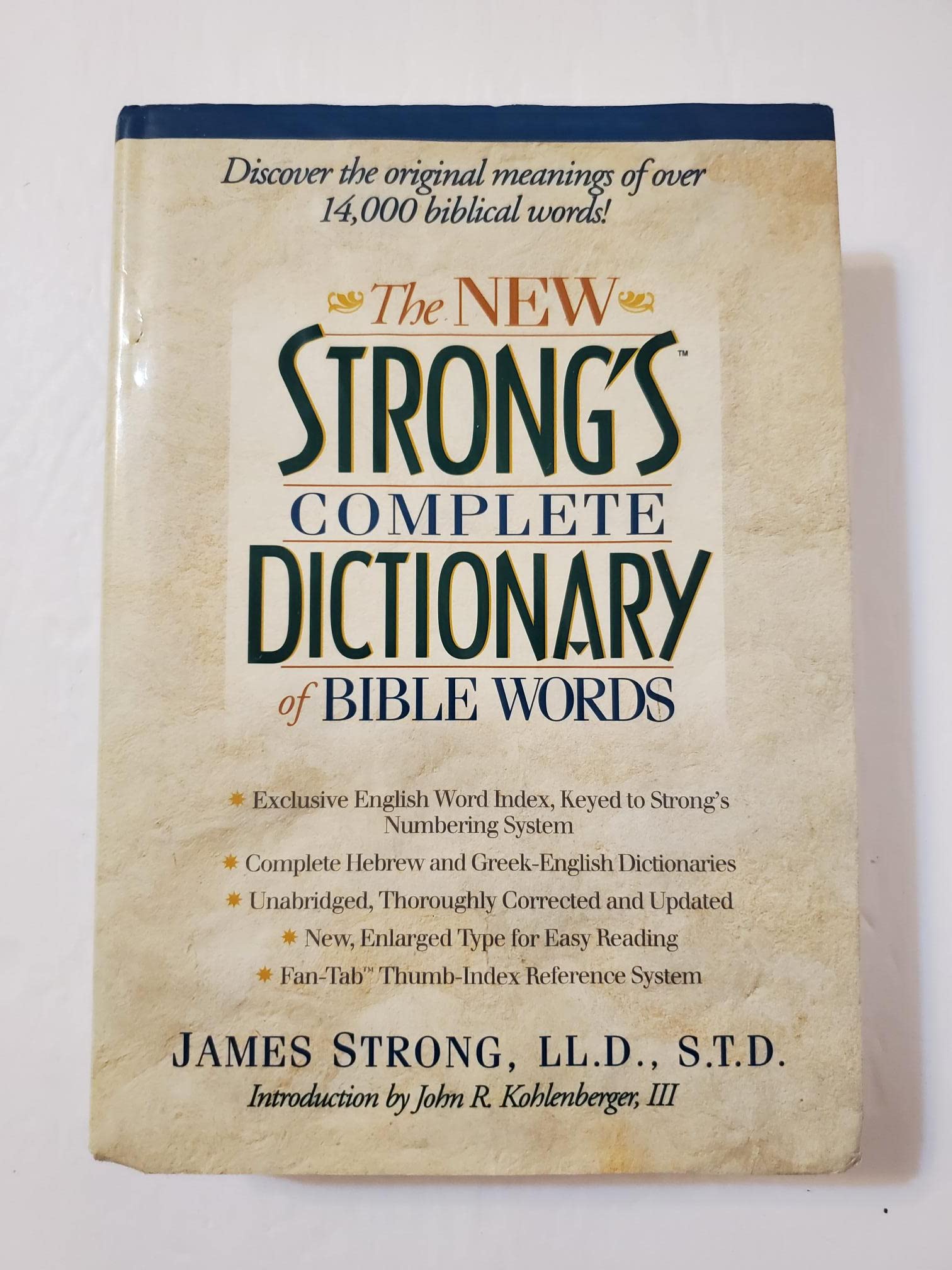

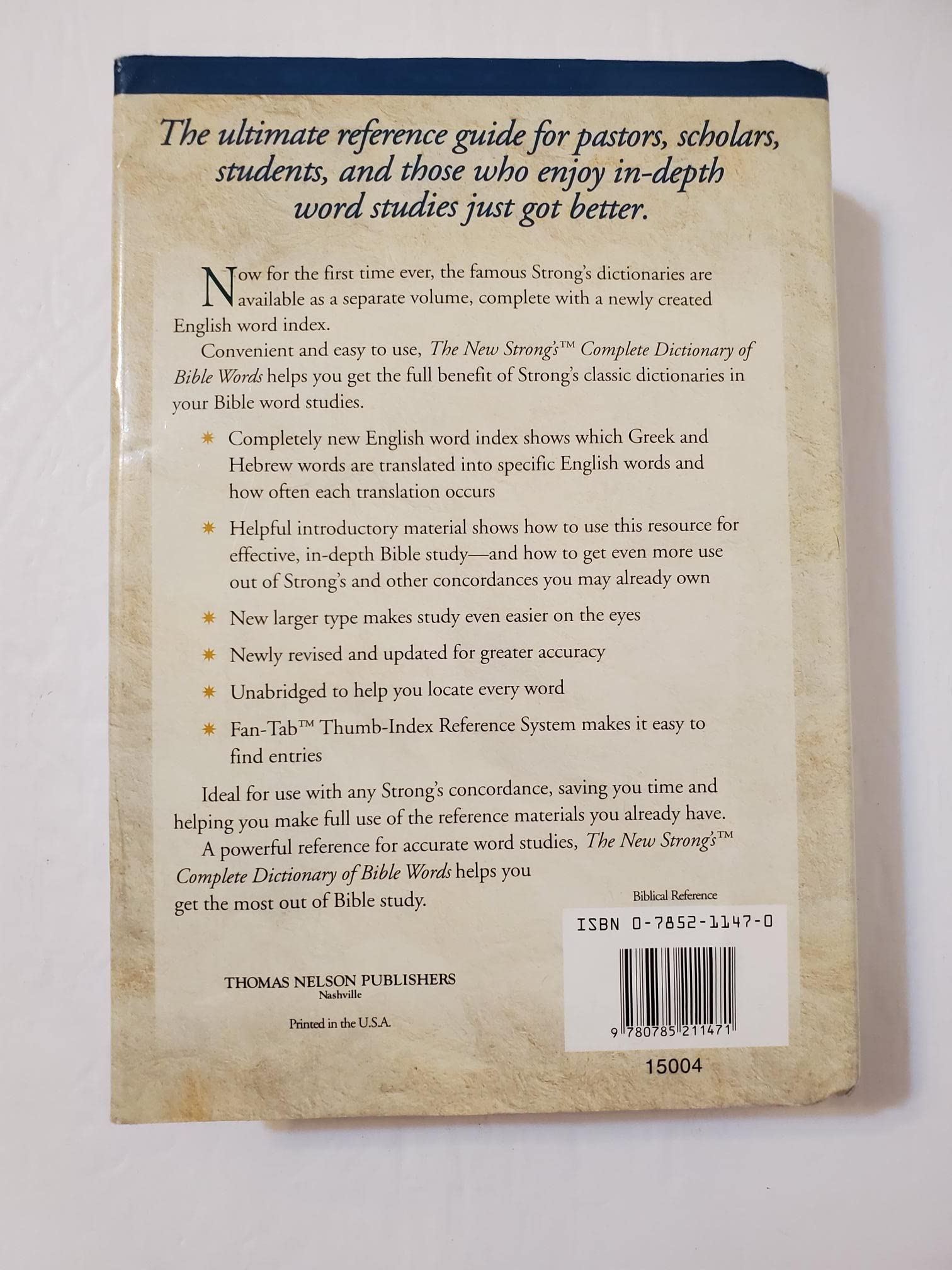
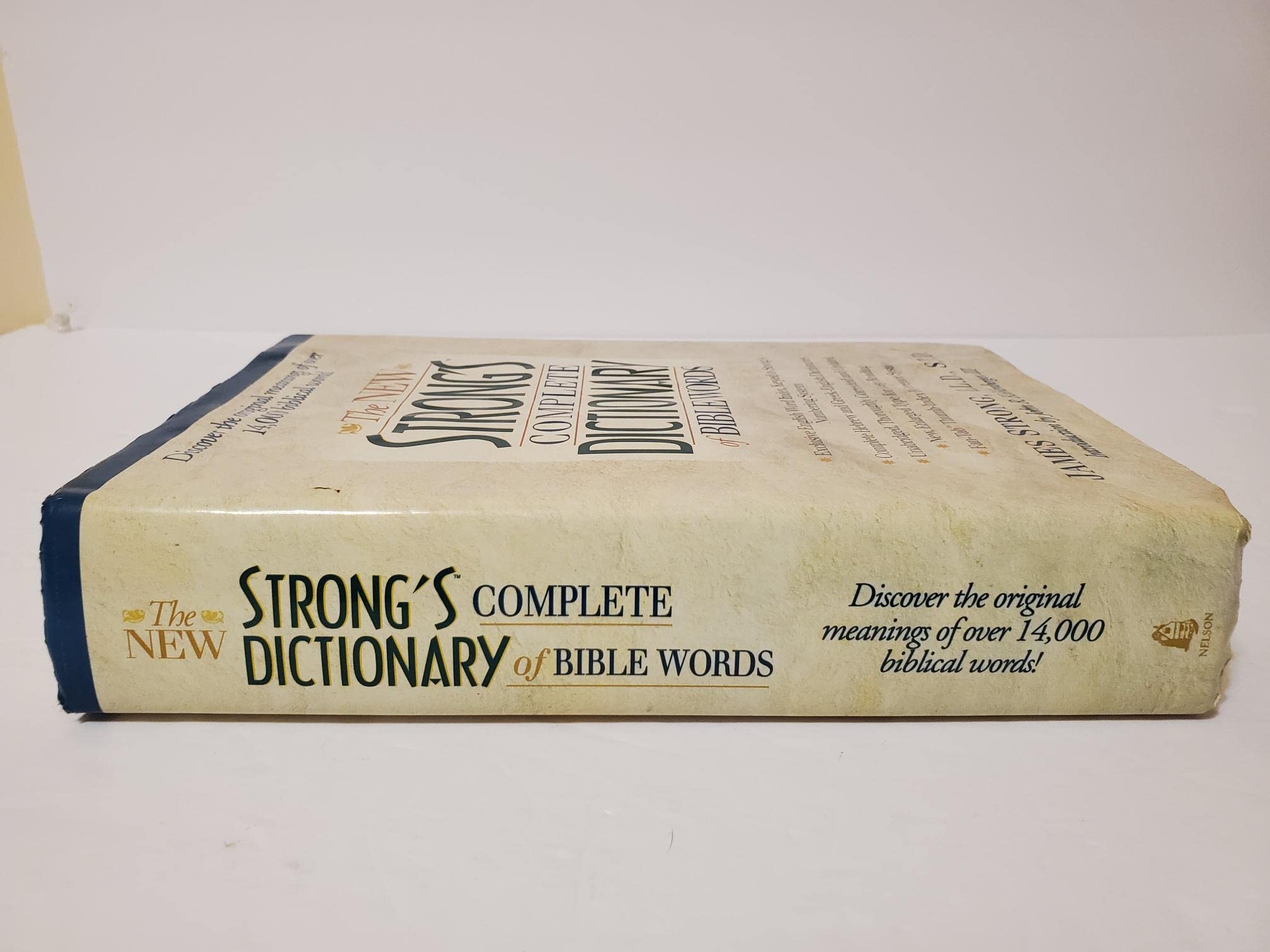
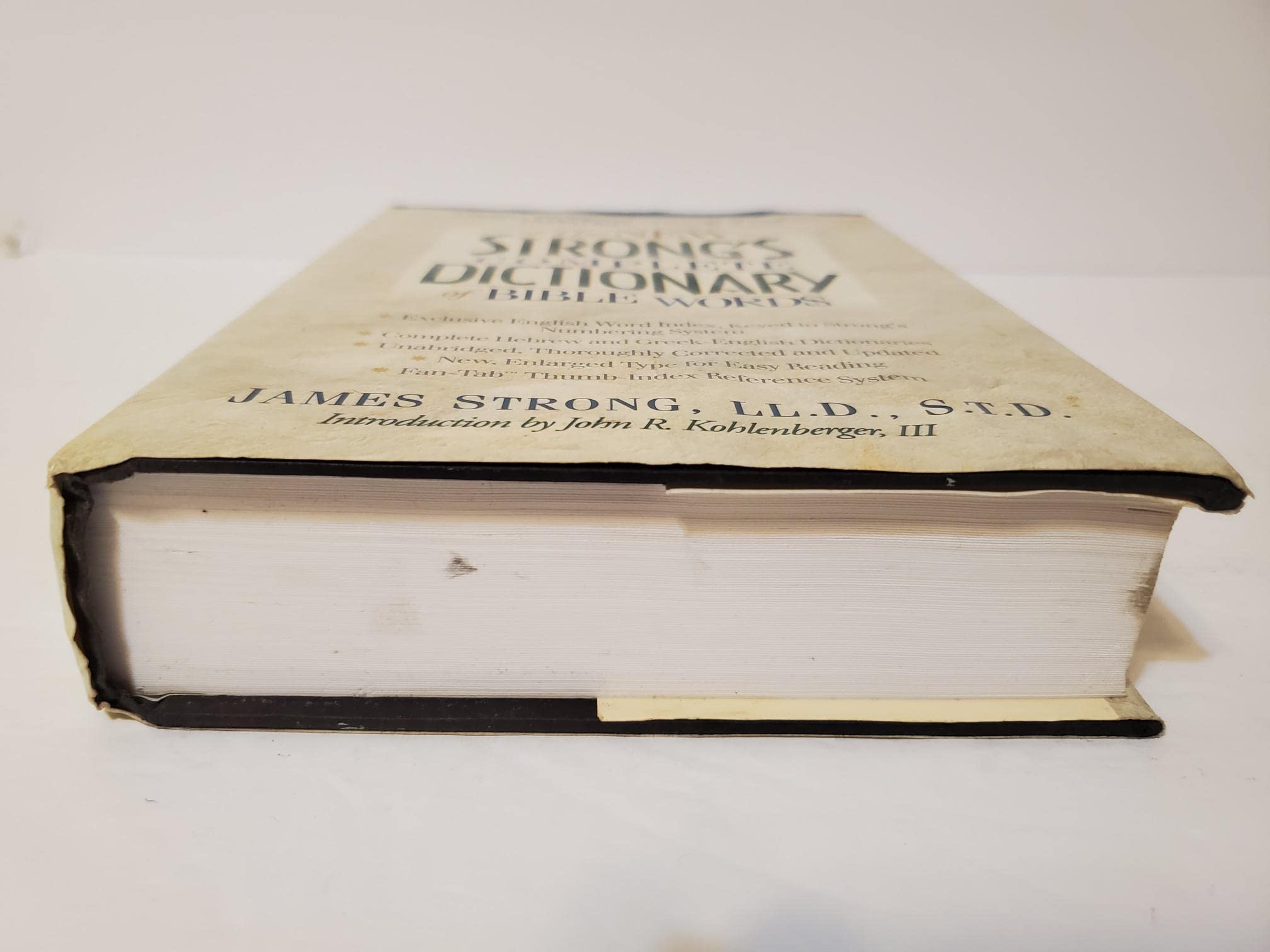
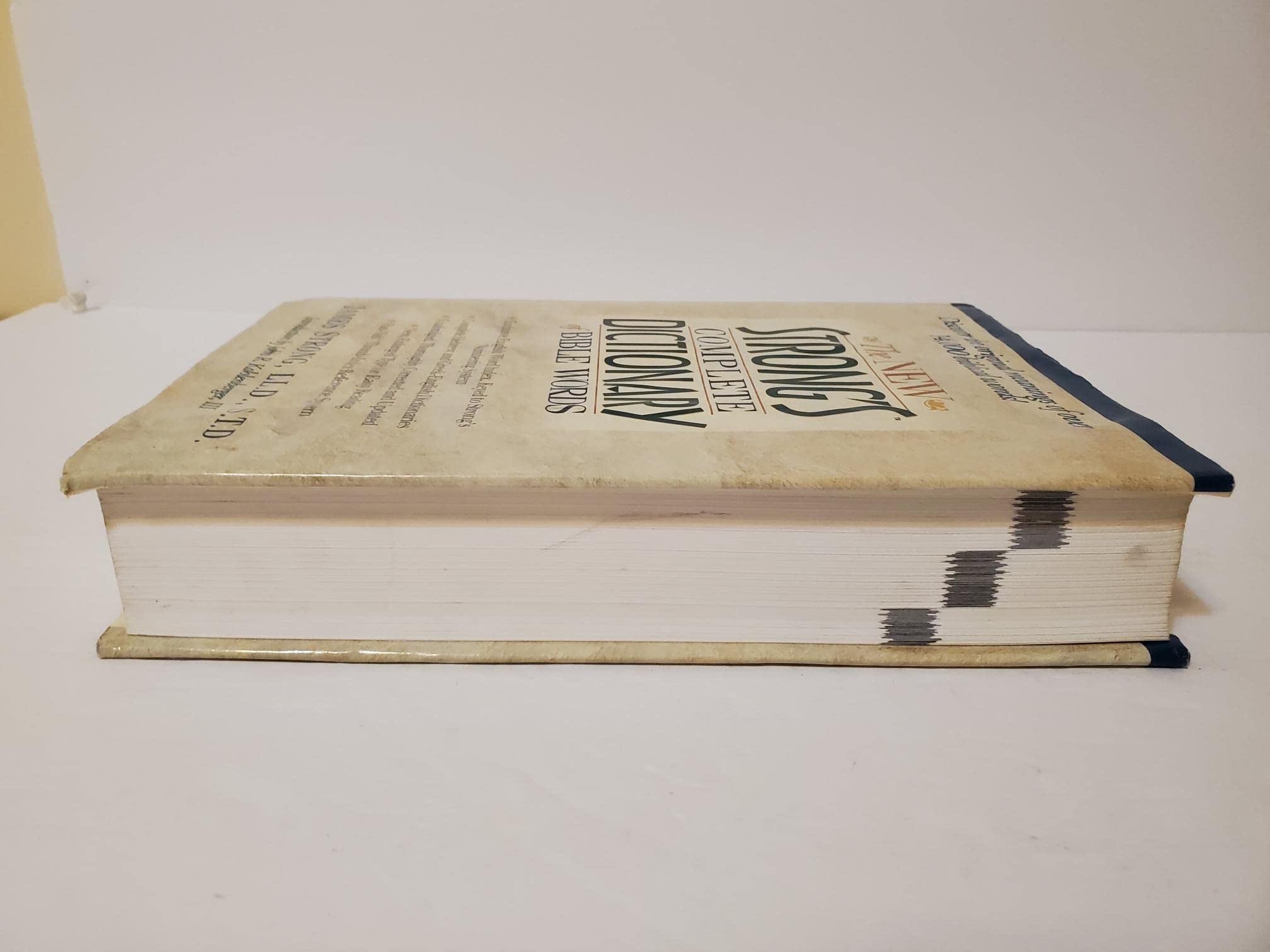

The New Strong's Complete Dictionary of Bible Words: A Complete One-Volume Resource for Discovering the Original Meaning of over 14, 000 Biblical Words!
R**Y
BBLE WORDS
A very comprehensive and full explanation of Bible words giving their real meaning from the Hebrew and Greek - essential for the serious Bible student.
A**R
Five Stars
great book thanks
B**E
Five Stars
Good
G**R
A Specialised, but Very Effective, Resource for Bible Word Studies, When Used Aright with Other Scholarly Aids
This publication distills the linguistic essence of the famous exhaustive word concordance of James Strong, listing English words in the Authorised "King James" Version of the Bible (A.V.), but, alas, without so indexing and analysing the vocabulary of the A.V. version's Apocrypha (i.e., the deuterocanonical writings of the Old Testament). The A.V.'s English words appear alphabetically arranged in the first section. In second and third sections (for, respectively, the Old Testament and the New Testament) the Hebrew, Aramaic, and Greek words which the A.V. translated are arrayed numerically by the numbers which Strong assigned to them in his concordance, with Strong's lexical definitions, analyses, and comments.The purpose of this publication, in extracting data from Strong's complete concordance as it does, is fairly well summed up in saying that it presents Strong's lexical and linguistic information and insights (both regarding the original Hebrew, Aramaic, and Greek languages and the English of the translators of the Authorised "King James" Version) apart from all the finding and collocation functions of Strong's full concordance. The book makes a good Strong-lexical supplement even to use with other concordances, whether of the A.V. or of other translations, as well as to use with Strong's own concordance of the A.V. Bible. (The other standard analytical concordance to the A.V. Bible is, of course, Robert Young's Analytical Concordance to the Bible, and a fine one to another and, for better and for worse, modern translation is Richard E. Whittaker's The Eerdmans Analytical Concordance to the Revised Standard Version of the Bible.) The paper jacket that enfolds the publication under review here, however, gives a misleading impression of what the book does, which may have aroused hopes in some of its purchasers that use of the book itself dashed, accounting for certain of the negative comments in some other Amazon users' reviews.There has been an "expanded" edition of this work, published by T. Nelson in 2001, but, for the most part, its differences derive from also incorporating much (but by no means all) of the information in W. E. Vine's own expository dictionary of Bible vocabulary. The buyer can obtain the original edition of this book based on Strong's work more cheaply, which a serious student of the Holy Scriptures should have in tandem with Vine's own expository dictionary in one of the better and more complete editions of it.This lexical tool, in this original form or as "expanded" in the 2001 edition, has somewhat limited utility for the average Bible reader, taken on its own, but it does make for a powerful tool when used with certain reference Bibles that are keyed numerically to Strong. One such, keying to Strong's system what are deemed to be the most important words, is the Hebrew-Greek Key Word Study Bible by Spiros Zodhiates (or Zodiates, as the surname sometimes is spelled), which is available (either for the "complete" Protestant Bible, hence without the O.T.'s deuterocanonical writings, or for the New Testament alone) in editions based on a the choice of the A.V. or the New American Standard Version translations, both of which are sufficiently literal translations (the A.V. in Tudor period English, the N.A.S.V. in current English), to be of maximum use in undertaking word studies. However, when choosing an edition of Zodhiates' study Bible, one should bear in mind that the A.V. Bible is based on a superior ("Byzantine") Greek text for the N.T., while the deficient and defective underlying Greek of the N.A.S.V.'s N.T. is a form of the so-called "Critical Text", with all of its trendy but misleading corruptions which appeal so much to modern but sadly misled scholars.Hendrickson is a publishing house which offers a complete Hebrew-Greek-English Bible in which every single word in the original languages is keyed to Strong's numbers, with two English translations included together, one interlinearly, the other printed aside. Jay P. Green is the editor of this, and it is available in one large single volume or in sets divided into 3 or 4 volumes. One caution is that it is hard to follow the Hebrew O.T. in such an edition, since, of course, Hebrew writing is backwards to what one is accustomed in English, which can make the Hebrew awkward, even downright bewildering, to follow.Green's is even more helpful and exhaustive than Zodiates' study Bible, but the latter is easier to handle physically and is usually sufficient for most needs, though it is nice to have both; in choosing between them, the buyer should decide whether he wants the Strong numbers keyed directly to English words or/and keyed to the words in the original languages with interlinear English directly below.The numerical sections for Hebrew-Aramaic and for Greek words at the back of Zodhiates' and Green's word study Bibles are very compactly printed, hence less easy to read than in the publication under review, and, of course, as they appear in Zodhiates' and Green's publications, they do not benefit from the additional editing of them as available in the product from Thomas Nelson Publishers, under review here.A serious student, whether a layman or an ordained cleric, will want to have every one of the items reviewed or mentioned above. Although all of the authors and editors of these works are Protestants or sectaries, their theological and exegetical stances do not affect too unduly their work in the area of texts and translations, although the buyer of Catholic or Eastern Orthodox persuasion should bear in mind the allegiances of these scholars to their respective theological, exegetical, and/or Millennialist partisanships. A reader whose interest in matters of text and translation is minimal, however, will find that a good edition of Strong's or Young's analytical concordances themselves will meet his needs more satisfactorily.
T**T
Four Stars
good
Trustpilot
1 week ago
1 week ago